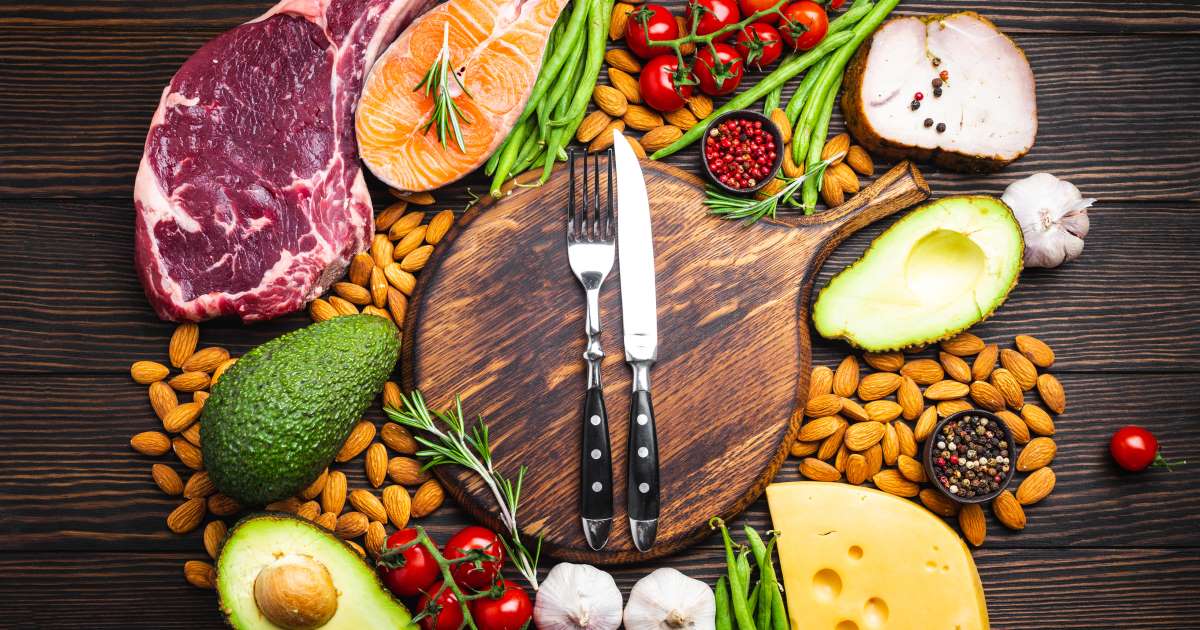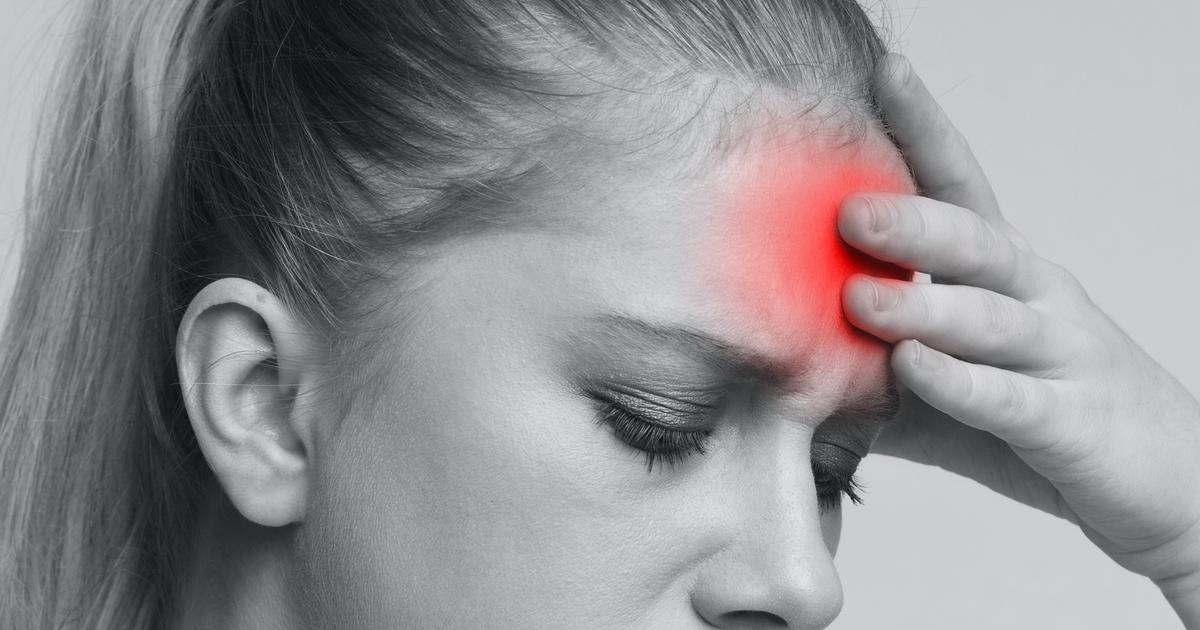What Is The Keto Flu?
We have all heard of the everyday flu many individuals are vaccinated against annually, especially children and the elderly. However, few have heard of something as unique as the ketogenic flu. What is the keto flu and how does it occur in an average individual? The keto flu is actually a number of symptoms similar to the regular flu that occur in some individuals when they start the ketogenic diet. Below, we discuss exactly what the keto diet is and the causes and risk factors of the keto flu. This article also delves into the flu-like symptoms some individuals who start the keto diet can encounter, as well as its treatments and how to prevent the keto flu from occurring.
Overview Of The Keto Diet

The ketogenic diet is a high-fat and low-carb diet meant to improve an individual's health and help them lose weight. There are a variety of medical conditions the ketogenic diet can help prevent such as cancer, diabetes, Alzheimer's disease, and epilepsy.
By drastically decreasing one's carbohydrate intake and replacing it with more fat and protein (though a lesser amount than fat), the body goes into a metabolic state called ketosis. There are specific foods someone on the ketogenic diet will need to avoid, including sugar-filled foods such as cake, grains or starches such as rice and pasta, fruit, beans, root vegetables such as potatoes and carrots, and alcohol. The type of foods the keto diet is based on include meat such as chicken, turkey, or beef, bacon, fatty fish such as salmon or trout, eggs, butter, unprocessed cheese, healthy oils, and avocados.
Get to know the details on ketosis next.
What Is Ketosis?

Ketosis is the body's process of burning ketones instead of glucose. The body naturally burns glucose as energy. However, when an individual stops consuming carbohydrates, their body switches to burning ketones for energy. For some individuals, the switch cause withdrawal symptoms, which can be uncomfortable and include nausea, muscle cramps, vomiting, and diarrhea. The symptoms usually start within a few days of adopting and sticking to the diet and usually go away after a week or so. Symptoms vary greatly from one person to another.
Get familiar with the various risk factors and causes associated with the keto flu next.
Causes And Risk Factors Of The Keto Flu

Adapting to a new diet with little carbohydrates makes the body burn ketones instead of glucose for energy. It is vital to consider, however, how the drastic reduction of carbohydrates and the immediate burning of fat for energy could force an individual's body into a state of shock.
An individual's body may go into a withdrawal-like state where it may experience the same symptoms as when an individual is dealing with an illness such as the typical flu or a cold. Typically, the cause of the keto flu includes carbohydrate withdrawal or an immunological reaction. It may even be due to the typical changes in the gut microbiome after taking part in a new diet. Immediately removing carbohydrates from one's diet, losing too many electrolytes, and becoming very dehydrated all increase the risk
Uncover the detailed symptoms of the keto flu next.
The Symptoms Of The Keto Flu

As the body begins adapting to the ketogenic diet and lifestyle, the transition to low-carb intake can be rather complicated and feel difficult to undertake. As many as twenty-five percent of individuals on the keto diet can display flu-like symptoms, which may occur within days after starting the new eating pattern.
The symptoms vary among every individual with some experiencing severe symptoms while others feeling mild side effects. The common symptoms individuals may feel include headaches, weakness, irritability, constipation, nausea, vomiting, dizziness, cramps, trouble sleeping, sore muscles, and trouble concentrating. Luckily, these symptoms typically only last only about one week.
Even though there are unpleasant side effects to the ketogenic diet, there are ways to either treat the keto flu or prevent it altogether.
Treating The Keto Flu

While the keto flu can make individuals feel terrible, there are straightforward ways to improve the symptoms. Everyone will be able to move forward with the ketogenic diet more easily if they partake in the following suggestions.
Glycogen is a stored type of carbohydrate that can bind itself to water molecules in the human body. When individuals give up carbohydrates and begin the keto diet, water is removed more quickly from their body. Unfortunately, many do not realize this can result in the keto flu. When treating the keto flu, individuals will need to stay hydrated and drink plenty of water. This will reduce fatigue and stop muscle cramps.
Individuals with the keto flu will also need to replace electrolytes because this diet restricts foods high in potassium. Adding salt to food and eating green, leafy vegetables as well as avocados can help boost an individual's electrolyte intake. In addition, individuals with the keto flu will want to get plenty of sleep to avoid the fatigue and give their body as much energy to fight their symptoms as possible.
Discover how to prevent the keto flu from occurring now.
Preventing The Keto Flu

Preventing the keto flu includes a variety of steps such as making sure to eat enough fats. Transitioning to a new diet could lead individuals to crave foods such as bread, cookies, or pasta, and taking in more fats will help with these cravings and make sure individuals feel full. However, this is not the best way to ensure the keto flu does not appear. Individuals can greatly reduce their risk of developing this condition if they slowly transition to following the ketogenic diet.
Slowly cutting back on carbohydrates and introducing more fats into one's diet such as avocados or salmon will help individuals prevent the symptoms of the keto flu and ensure the transition is simpler as their body will be less likely to go into shock or withdrawal. Remember, drinking more water is also important! These steps can go a long way toward ensuring the transition to the keto diet goes smoothly.
To help their body make the transition faster, there are some activities individuals should avoid while experiencing keto flu symptoms. Learn about them now.
Activities To Avoid During The Keto Flu

Many individuals have probably heard they shouldn't exercise when they first start the ketogenic diet. However, this isn't completely true. There are some exercise activities to avoid during the keto flu, but there are some types of exercising that shouldn't increase symptoms and may make individuals feel better too. Types of exercises that shouldn't increase uncomfortable feelings while starting the diet include flexibility, stability, anaerobic, and light aerobic workouts.
However, if an individual's symptoms increase or become bothersome with these activities or any others, it's important for them to take a break until they feel better. They should eat lots of small meals to keep their energy levels up and drink water to keep hydrated. The good news is, the human body is very adaptive. After a few days on the keto diet, the individual's body will begin to adapt to the low carb intake and they'll be able to resume normal, daily activities without any ill effects.
Uncover details on the complications linked to the keto flu now.
Complications Of The Keto Flu

As the popularity of the keto diet keeps growing, there's more to learn about complications of the keto flu too. One side effect of ketosis, which is the main factor that causes the keto flu, is a drastic drop in blood sugar. Those who struggle with metabolic disorders or blood sugar high and lows may struggle with keeping their bodies happy while trying to lose weight. Symptoms of metabolic disorders that can be complications of the keto flu include dehydration, seizures, ketoacidosis, and decreased athletic performance.
If an individual is prone to any of these conditions, or their symptoms don't resolve after a week or so, it's important for them to consult a physician regarding symptoms and whether the keto lifestyle is right for them.
Get familiar with other side effects of the keto diet now.
Other Keto Diet Side Effects

Not everyone who starts the keto diet will experience the same effects on their body. If an individual already had a low-carb lifestyle to begin with, they might not experience any symptoms at all. Other keto diet side effects may include headaches, dizziness, tiredness, irritability, sleeplessness, sugar cravings, and trouble concentrating.
Under the right circumstances, the keto diet may be a great way to drop unwanted weight faster than other diets or lifestyle changes. Because the diet is also associated with some side effects, it's also important for dieters to do their research to make sure the diet is the right fit for their body and lifestyle.
